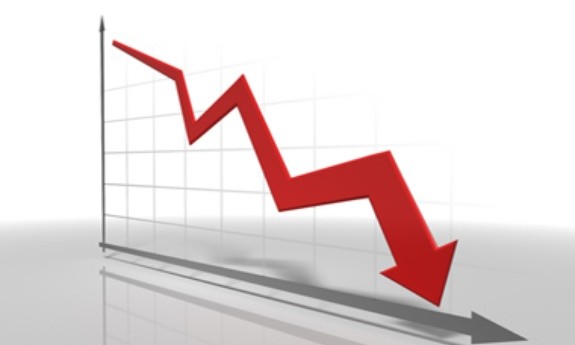Forbes, 23 August 2016
When Turkey shot down a Russian warplane last year, relations between the two countries soured. Russia retaliated by cancelling plans to build a 900 km natural gas pipeline through Turkey. It will be called TurkStream. This new hostility opened an opportunity for Europeans seeking to escape from their own dependence on Russian energy. When it appeared TurkStream would not fail, Europeans finally began preparing for alternative sources of natural gas.
But geopolitical conditions change swiftly. Following the failed “coup” in Turkey last month, Erdogan and Putin have rekindled their friendship. The relationship has the potential to help Russia with its energy plans and military strategies in the Middle East and Ukraine.
Russian President Vladimir Putin, right, and Turkish President Recep Tayyip Erdogan shake hands at a news conference after their talks in the Konstantin palace outside St.Petersburg, Russia, on Tuesday, Aug. 9, 2016. President Erdogan travels to Russia to meet with President Putin for the first time since apologizing in late June for the downing of a Russian fighter jet along the Syrian border in November last year. (AP Photo/Alexander Zemlianichenko)
The result of Russia’s and Turkey’s rapprochement is continued European dependence on Russian natural gas for the foreseeable future. Before Turkey and Russia made amends, there were high hopes that Europe would commit to other sources of natural gas and not fall further under Russian dependance. In the months following the fight between Russia and Turkey, much excitement, particularly about the possibility of Europe importing more American liquified natural gas (LNG) emerged. Europe could also obtain natural gas from the Caspian Sea area, via a much shorter pipeline that would originate in Azerbaijan. Other sources of LNG include Qatar and the always friendly Australia. LNG imports would require the construction of new LNG import terminals and connecting pipelines.
No comments yet.
-
 ARMENIA'S ECONOMIC ACTIVITY INDEX SHOWS RECORD DECLINE
The Caucasus and Turkish-Armenian Relations
24.08.2016
ARMENIA'S ECONOMIC ACTIVITY INDEX SHOWS RECORD DECLINE
The Caucasus and Turkish-Armenian Relations
24.08.2016
- SOCAR TO PARTICIPATE IN NEGOTIATIONS OF LARGEST GAS COMPANIES The Caucasus and Turkish-Armenian Relations 24.08.2016
- ARMENIA’S EAP CSF MONITORING MISSION PRESENTS FINDINGS FROM JULY STANDOFF The Caucasus and Turkish-Armenian Relations 24.08.2016
- ATTEMPTED HACK OF NEW YORK TIMES MIGHT FUEL MORE TALK OF RUSSIA ASSISTING TRUMP Asia - Pacific 24.08.2016
- ALEXIS TSIPRAS TO PROPOSE COMMON POSITIONS TO STRENGTHEN DEVELOPMENT DURING PES MEETING The Balkans 24.08.2016
-
25.01.2016
THE ARMENIAN QUESTION - BASIC KNOWLEDGE AND DOCUMENTATION -
12.06.2024
THE TRUTH WILL OUT -
27.03.2023
RADİKAL ERMENİ UNSURLARCA GERÇEKLEŞTİRİLEN MEZALİMLER VE VANDALİZM -
17.03.2023
PATRIOTISM PERVERTED -
23.02.2023
MEN ARE LIKE THAT -
03.02.2023
BAKÜ-TİFLİS-CEYHAN BORU HATTININ YAŞANAN TARİHİ -
16.12.2022
INTERNATIONAL SCHOLARS ON THE EVENTS OF 1915 -
07.12.2022
FAKE PHOTOS AND THE ARMENIAN PROPAGANDA -
07.12.2022
ERMENİ PROPAGANDASI VE SAHTE RESİMLER -
01.01.2022
A Letter From Japan - Strategically Mum: The Silence of the Armenians -
01.01.2022
Japonya'dan Bir Mektup - Stratejik Suskunluk: Ermenilerin Sessizliği -
03.06.2020
Anastas Mikoyan: Confessions of an Armenian Bolshevik -
08.04.2020
Sovyet Sonrası Ukrayna’da Devlet, Toplum ve Siyaset - Değişen Dinamikler, Dönüşen Kimlikler -
12.06.2018
Ermeni Sorunuyla İlgili İngiliz Belgeleri (1912-1923) - British Documents on Armenian Question (1912-1923) -
02.12.2016
Turkish-Russian Academics: A Historical Study on the Caucasus -
01.07.2016
Gürcistan'daki Müslüman Topluluklar: Azınlık Hakları, Kimlik, Siyaset -
10.03.2016
Armenian Diaspora: Diaspora, State and the Imagination of the Republic of Armenia -
24.01.2016
ERMENİ SORUNU - TEMEL BİLGİ VE BELGELER (2. BASKI)
-
AVİM Conference Hall 24.01.2023
CONFERENCE TITLED “HUNGARY’S PERSPECTIVES ON THE TURKIC WORLD"









